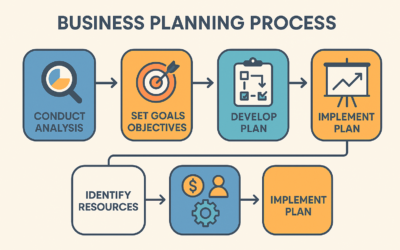When you run your own business, you are responsible for making sure you can get to work each day to keep the business running.
There’s not much certainty in life and with the recent Covid pandemic as a reminder, the unexpected can happen at any time, and your business needs to be protected from future unexpected events.
That means making wise insurance decisions.
Income Protection and Critical Illness insurance both pay out money when the life insured suffer an illness or injury.
But what is the difference between the two, and which is best to have?
When will they pay out?
Critical illness makes a one-time-only lump sum payment if you are diagnosed with any of the illnesses or injuries specified in the policy document.
If your health issue is not specifically covered or is not sufficiently bad to meet the definition of the illness, you receive nothing.
Income protection pays out a percentage of your income as a monthly benefit for any illness or injury, provided you are unable to work.
Income protection covers a wider range of health issues and can pay out more than one claim, but if you can keep working, it will pay you nothing.
Which will pay out the most?
Critical illness pays out the full amount insured if your claim is approved. You can insure yourself for almost any amount you want. The higher the sum insured, the more expensive the insurance premiums. If you insure yourself for $1 million, then a successful claim would pay $1 million.
How much you can insure yourself from an Income protection policy is dependent on your income. Typically, you can insure yourself between 50% to 75% of your income. For self-employed, it is more likely to be a lower percentage.
If your monthly self-employed income is $8,000, you should be able to insure yourself for at least $4,000/month.
If you are 35 and you suffer a health issue that stops you from ever working again, a typical policy would pay you $4,000/month for 30 years and increase each year to keep pace with inflation.
Excluding the inflation adjustments, that’s $1,440,000.
Which policy pays the most will depend on your level of coverage for both insurances, how much you are prepared to pay, and the severity of your health issues that triggers a successful claim.
Which is easier to make a successful claim?
With critical illness, if your medical evidence proves you meet the policy definition of the health condition, the full lump sum insured is paid out.
For an income protection claim, you need medical proof that you cannot work which can be tricky sometimes, plus you need to keep proving that each month you are on claim. In some instances, you will also need to prove your income too. If you return to work it can get even more complex, but usually, you can receive a part payment on top of what you earn part-time.
Which is more expensive?
This will largely depend on how much coverage you choose to take out. There are many variables in income protection that can make a huge difference in the cost.
If you work in riskier, more physical jobs, income protection is more expensive than if you work at a desk all day.
Which is best?
While they appear similar, they are different.
One pays a lump sum, the other a monthly income.
With a critical illness, you receive a lump sum, you could spend all that money, then suffer another illness and you have no protection in place.
Income protection will pay multiple times for multiple conditions if they affect your ability to work. Because the severity of the health issue doesn’t have to be as high as critical illness, you are far more likely to claim on an income protection policy than a critical illness policy.
Helping you make these sorts of decisions as they relate to your business is one of the many reasons why Global Resources LLC exists, contact them to make sure you have the right protection in place.

0 Comments